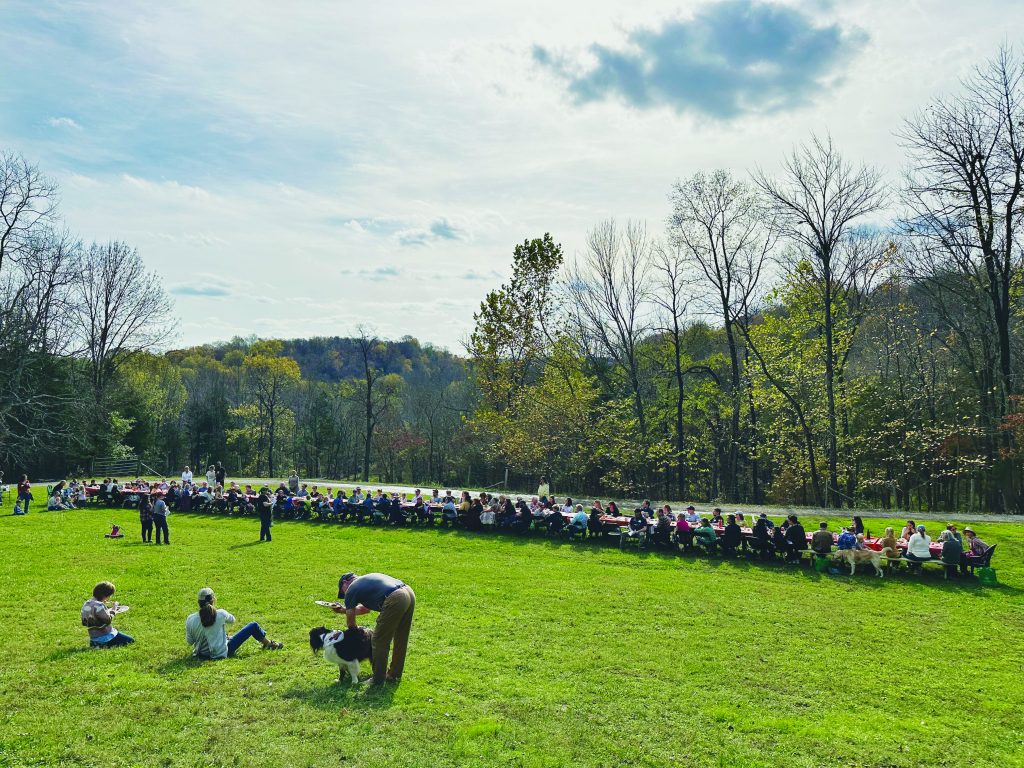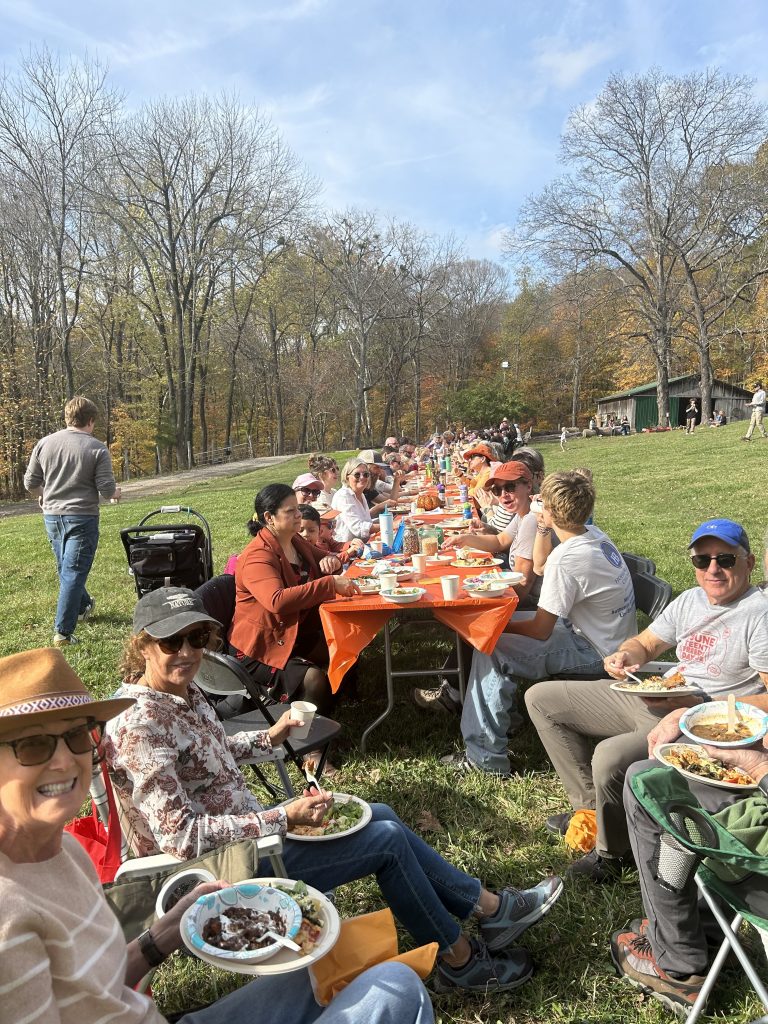
Plenty of Nashville ministers offer the Eucharist every week, but Rev. Dr. Kate Fields might be the only one who occasionally feeds her flock with her own homemade cornbread. That’s not just because she loves baking, which she does. Pastor Kate’s Southern-style communion springs from her unusual journey to the pulpit, which taught her that food is an essential part of faith.
Fields, a pastor at St. Augustine’s Episcopal Chapel, felt a spiritual calling during her childhood in Old Hickory. Since the church she attended didn’t allow women to preach, she thought her impulse for service would lead her to public health, so she got a master’s degree in biology. Later, however, she decided to pursue theology after all, earning both a master’s in divinity and a doctorate in ministry. “There were so many overlaps in what I studied,” she says. “Theology is the study of God, and biology is the study of life. And for me, it felt natural to combine them. I’m looking at the Tennessee hills, and I understand them in the context of God.”
To fuse these perspectives, Fields created Food and Faith, a multi-week class for people of all beliefs. In most sessions, participants meet with someone who helps feed people in Davidson County, like a local farmer or the founder of a community garden. The class then discusses their visit from a spiritual perspective.

“I think a lot about what faith looks like practically, on the ground,” Fields says. “It looks like people who care for the land we’re on. There’s so much power in making and sharing food that comes from the community where we live.”
Which brings us to that Southern Eucharist. Food and Faith class ends with a “100-Mile Meal,” meaning a potluck of dishes made with ingredients sourced within 100 miles of Nashville. When the gathering is hosted by a Christian church, Fields also leads a communion service that uses locally made cider and her personal cornbread recipe. (She will adapt the program to suit the faith practices of the organization that hosts it.) This ritual is a potent reminder that people at the table are being nourished by the bounty of their own land.
But the meal’s power doesn’t stop there. The class invites family, friends, neighbors and pretty much anyone else they can think of to sit down and eat. Take the 100-Mile Meal held last fall at the Welcome Garden, a CSA in Goodlettsville that’s affiliated with St. Augustine’s. Almost 200 people feasted on dozens of dishes, including meatballs, kale salad and three kinds of fruit cobbler. Fields insisted that everyone sit together, with tables pushed together in an unbroken line. As she led a prayer (and volunteers walked around with plates full of cornbread), there was a profound sense of unity. Sitting on the grounds of a farm, with hills rolling in the distance and an enormous pig sleeping in a pen just a few hundred yards away, this particular lunch felt like it belonged to the people of Nashville. “What I love about that meal is that we’re all feeding each other,” Fields says. “It’s not just one chef making all these dishes. It’s all these congregants bringing food to serve each other.”
Fields hopes to offer the next Food and Faith class this summer. Meanwhile, she’s working with Nashville’s Metropolitan Human Relations Commission to pilot a program called No Hate On My Plate. Throughout 2025, this initiative will invite people from different backgrounds to share a meal and have moderated discussions about loaded issues like racism and poverty. The MHRC will use what they hear to inform citywide policies, but the diners may experience a more immediate impact. “It can be so hard to talk about things that make us uncomfortable, but everybody can talk about food,” Fields says. “That’s a great way to find common ground.”
For more information, email Pastor Kate at kate@staugustineschapel.org